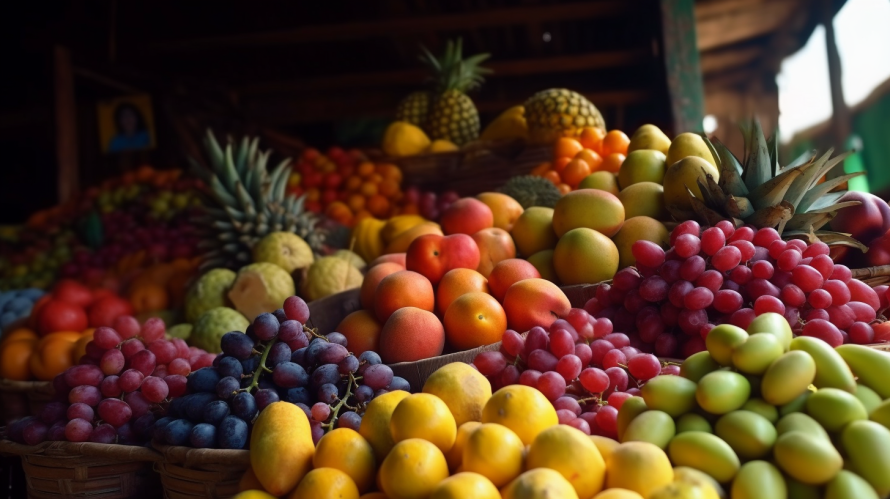
If there is a surplus of a particular good on the market, it means that there is an excess supply of that product compared to the demand for it. This can have several implications for the market and the economy as a whole. In this Editology note, we will explain the meaning of a surplus of good X on the market and its implications for the South African market and economy.
Defining a Surplus of Good X
A surplus of good X occurs when the supply of the product is greater than the demand for it. This means that producers are producing more of the good than consumers are willing to purchase. This can lead to a build-up of inventory for producers, as they are unable to sell all the goods they produce.
Implications of a Surplus of Good X on the Market
There are several implications of a surplus of good X on the market. One of the most significant impacts is a decrease in the price of the product. When there is a surplus of a particular good, producers may lower their prices to encourage consumers to purchase more of the product. This can create a cycle where producers continue to lower their prices to try and sell more of the product, which can further decrease the price of the product.
Another impact of a surplus of good X is a decrease in profits for producers. When there is a surplus of a particular good, producers may need to lower their prices to remain competitive in the market. This can lead to lower profit margins for producers, as they are selling their products for less than they may have intended.
Implications of a Surplus of Good X on the South African Economy
In the South African economy, a surplus of a particular good can have several implications. One of the most significant impacts is a decrease in the price of the product, which can benefit consumers. Lower prices can increase consumer spending, as individuals may be more likely to purchase products when they are cheaper.
However, a surplus of a particular good can also have negative implications for the economy. If producers are unable to sell their products, they may need to decrease their production levels, which can lead to layoffs and unemployment. This can have a ripple effect on the economy, as individuals who are laid off may have less disposable income, which can impact consumer spending and ultimately affect the overall economy.
In addition, a surplus of a particular good can also impact international trade. If there is a surplus of a particular good in South Africa, it may make it more difficult for producers to export their products to other countries. This can impact the country’s trade balance and potentially lead to a decrease in exports.
Examples of a Surplus of Good X in the South African Market
There have been several examples of a surplus of a particular good in the South African market. One recent example is the surplus of wine that occurred during the COVID-19 pandemic. With the closure of restaurants and bars, wine producers were left with an excess supply of wine. This led to a decrease in prices for wine and a buildup of inventory for producers.
Another example is the surplus of maize that occurred in South Africa in 2020. Due to favorable weather conditions, there was an increase in the production of maize, which led to a surplus of the product. This led to a decrease in prices for maize and a buildup of inventory for producers.
Strategies for Dealing with a Surplus of Good X
There are several strategies that producers and policymakers can use to deal with a surplus of a particular good. One strategy is to decrease production levels to match the demand for the product. This can help to prevent a buildup of inventory and decrease the likelihood of a decrease in prices.
Another strategy is to diversify production to reduce reliance on a single product. This can help to prevent a surplus of a particular good from having a significant impact on the economy, as producers may have other products to fall back on if one product is not selling as well.
Producers can also look for new markets for their products, either domestically or internationally. This can help to increase demand for the product and prevent a buildup of inventory. In addition, producers can invest in marketing and advertising to increase consumer demand for the product.
Policymakers can also implement policies to address a surplus of a particular good. One policy option is to implement tariffs or quotas on imports of similar products to reduce competition for domestic producers. This can help to increase demand for domestic products and prevent a buildup of inventory.
Another policy option is to provide subsidies or financial assistance to producers affected by a surplus of a particular good. This can help to offset some of the losses incurred by producers and prevent layoffs or unemployment.
Conclusion
In conclusion, if there is a surplus of good X on the market, it may also indicate that there is a lack of demand for that particular product, which can have wider implications for the overall health of the economy. In the South African market, a surplus of a particular good can lead to a decrease in prices, which can benefit consumers but negatively impact producers. It can also lead to a buildup of inventory and potentially impact employment and international trade. Strategies for dealing with a surplus of a particular good include decreasing production levels, diversifying production, looking for new markets, and implementing policies such as tariffs, quotas, subsidies, or financial assistance. By understanding the implications of a surplus of a particular good, producers, and policymakers can take action to mitigate its negative effects and promote a healthy market and economy.
